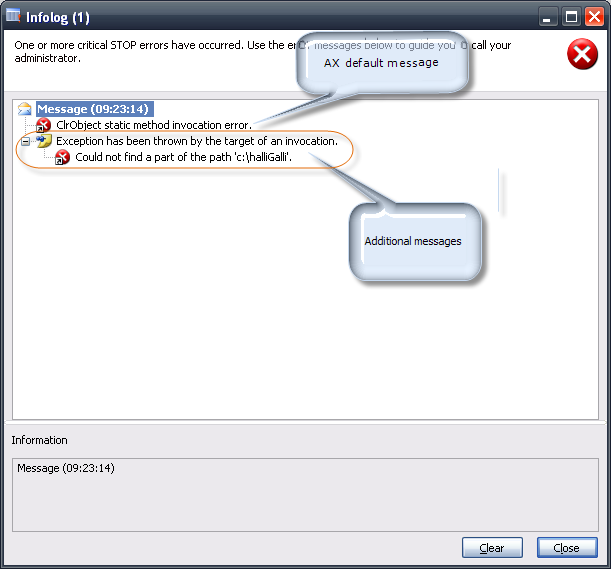Folgende statischer Methode automatisiert das Aufschlüsseln der .NET-Ausnahme:
static void cRLExtendException(System.Exception _exception)
{
System.Exception exception = _exception;
SysInfoLogStr infoLogStr;
;
if (exception)
{
infoLogStr = exception.get_Message();
if (exception.Equals(exception.GetBaseException()))
{
// the most inner exception has reached, now we can write the infolog message and throw the exception
error(infoLogStr);
throw Exception::CLRError;
}
else
{
// the current exception is not the most inner exception, so we just set a infolog prefix
setprefix(infoLogStr);
MyClass::cRLExtendException(exception.get_InnerException());
}
}
/* else
{
well, there was no CLR exception, so just left out
}
*/
}
Und so wird die neue Hilfsmethode verwendet:
System.String[] files;
;
try
{
files = System.IO.Directory::GetFiles('c:\\halliGalli');
}
catch
{
MyClass::cRLExtendException(CLRInterop::getLastException());
}
So sieht dann die Ausgabe des Infolog-Fensters aus:
In den Codebeispielen wurde die Hilfsmethode auf einer Klasse mit dem Namen 'MyClass' angelegt. Auf welcher Klasse schulssendlich die Methode implementiert wird, sollte aber der Entwickler, beziehungsweise das Entwicklerteam entscheiden.





No comments:
Post a Comment